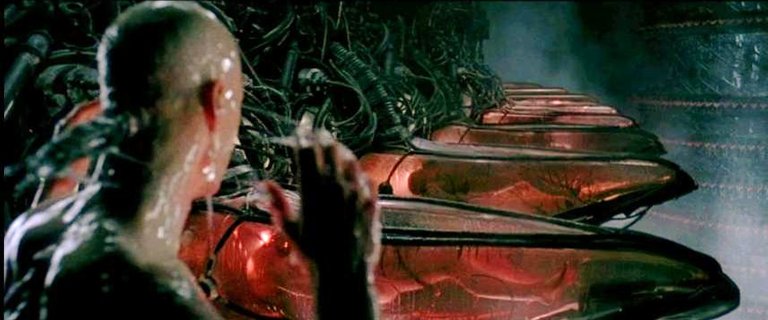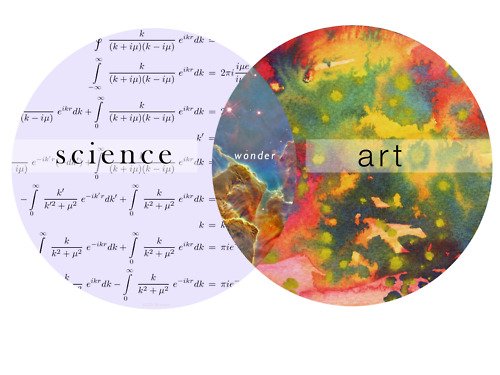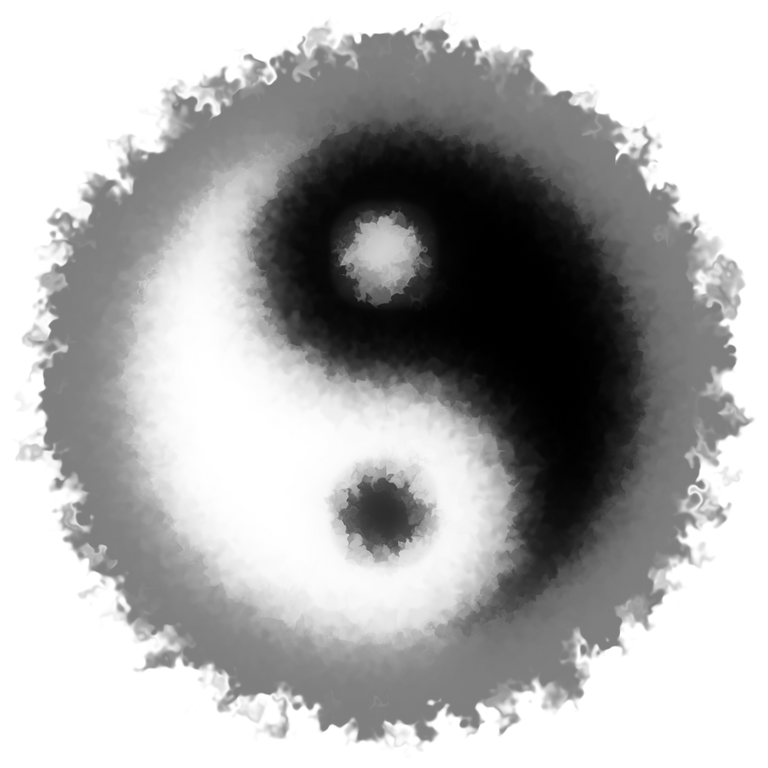
I have been interested in the nature of conscious experience since as long as I can remember. It has always struck me as an intrinsic value in a world where everything else is uncertain. If someone is experiencing suffering, it is intrinsically bad. If someone is experiencing happiness, it is intrinsically good. This is why I believe the mission to understand consciousness is inherently worthwhile.
In my last post I wrote about conscious freedom. Here I will here start at the beginning: What is consciousness? As I began writing I realized this needed to be in two parts. In a third post I will start to tackle the second question, What is freedom?
Is Consciousness Impossible to Explain?
Great physicists like Edward Witten and philosophers like Colin McGinn suggest that we will never understand consciousness. This might lead us to suspect that the mission is impossible. Some even say that it is a paradoxical quest, that the brain is just unable to comprehend itself. But is that really true or even likely?

In ancient times people would look to the stars and wonder, what are those shining lights? As always, some would aspire to understand, while others said it couldn’t be done. Centuries later we know the size, weight and locations of these orbs of light. We can even comprehend the particles and nuclear interactions that create the light that reach us here on earth.
Given this background, it seems strangely pessimistic to suppose that we cannot understand our own consciousness. If we dream about the stars at night, our brain is lit up in a strange way: in our mind’s eye we see the light shining clearly - but how is that light real? We are made of star-dust, but what a miracle it is that this dust can come alive to its own awareness!
And yet, I see no reason why this miracle cannot be understood in a scientific way. Our consciousness is just as much part of the physical world as anything else. To love the miracle and mystery of our world and awareness is also to embrace the unity and interconnectivity of it all.
Consciousness In Our Era of Pessimism

I hope you agree that the question is worthwhile, that it is optimistic but not silly to expect an answer, and that the solution to our question might help us deal with many other issues such as the nature of ourselves, of intrinsic value, meaning, freedom and morality.
The problem is that the question what is consciousness? itself is highly charged. There are many competing camps holding that their view of the question is the right one. Here I outline a few of them:
- Mysticism: That the question is impossible to answer.
- Deflationism: That the question is confused or trivial.
- Relativism: That there is no objective answer.
- Eliminativism: That consciousness is an illusion.
- Dualism: That there is no unified explanation.
Here we won't go into any of these positions. In fact, we will navigate between all of them. In my view these positions are pessimistic, and even hostile to anyone wanting to find a real solution.
Being Conscious of What it Takes

I think we can do better. To be honest, if we want to find a solution we must change our approach. If we surrender just after posing the question, no wonder we can’t find a solution! The obvious truth is that we are parts of reality - what else could we be? - being aware of itself - what could be more certain? We need to start there and be optimistic that we can answer the question.
To begin we need to avoid all of the positions above. To do that we simply have to negate all the positions and replace their answers with our own:
- Optimism: The question is possible to answer, and soluble!
- Meaningful: The question is meaningful.
- Objective: The question has an objective answer.
- Realism: Consciousness is real, and exists in itself.
- Unity: Consciousness is part of the physical world.
Regarding Objective we mean that the question is epistemically objective. This can be true even if ontologically consciousness is subjective. This means that while consciousness is subjective in its being, it can still be studied from the outside. Regarding Unity if consciousness is to interact with the physical world, it has to somehow be part of the physical world.
If we can really take these principles on board, and find a solution, we can finally explore the world of consciousness in an objective way, that is filled with optimism and meaning, that explores something inherently real and is unified within our total view of the cosmos.
Getting A Grip on Consciousness

To understand consciousness we must first get a grip on what it is. Beyond the fact that we are aware of our own awareness it is remarkably hard to find a description of consciousness beyond simple, vague descriptions like “feeling,” “experiencing” or that “that it is like something to be it.” More practically we can say that it is what emerges when you wake up from dreamless sleep.
This creates a huge problem when we want to really understand consciousness. When we try to describe consciousness in a subjective way, it is often vague and hard to relate to the objective world, and when we try to describe it objectively, it is hard to make sure we do so accurately.
We can think of the attempt to understand consciousness in a subjective, spiritual way (or phenomenological way), and the attempt to understand consciousness in an objective, physical way. The only way forward is to reconcile to two approaches.
The Spiritual Way: Everything and Nothing

In the spiritual literature they have a positive and a negative approach to define consciousness. In the first your find what you are by negating yourself, noticing what you are not. So you might begin: You are not these words, not your memories, not your thoughts, not your arm, etc. But while each of the negations might sound trivially true, you end up completely removing all things you can use to define yourself, so you end up - paradoxically - as nothing.
In the second you find yourself by what you are "also," so you are also these words, your memories, your thoughts, your arm, etc. But while it sounds fairly harmless to note that each thing is part of your experience, your experience ends up including all things, so you end up - paradoxically - as everything. Both of these methods are spiritual practices meant to evoke spiritual experiences, not something meant to embodying conceptual knowledge.
In these two ways we get into a paradoxical situation where we are nothing, and yet everything. One of the greatest spiritual teachers of the last century, Sri Nisargadatta Maharaj expressed this insight in the phrase:
When I look inside and see that I am nothing, that is wisdom
When I look outside and see that I am everything,that is love.
And between these two, my life turns.
Now half of you will find this a lovely thing to say, and the other might say it is a reckless spoof on true insight and scientific work. For my own part I can work with this tension in what follows. As we will see next, the scientific approach runs into a similar problem when we physically try to define negatively what consciousness is not, and positively what it really is.
The Physical Way: Brain Science

Physically we can define consciousness by what it is not. It is not the physical world in general. As far as we can tell it occurs in most brains. But maybe not all or only the brain? Certain places in the brain may be more relevant than others, input/output may or may not be relevant and certain ways of neuronal firing organization may matter for the emergence of mind.
First of all we can notice that while the corticothalamic system is implicated in consciousness, while the cerebellum - that is just as complex as far as neurons and interconnections go - does not seem implicated in consciousness. When we poke specific aspects of the cortex, specific aspects of consciousness are lost - but even when we remove the cerebellum consciousness seems to operate without any difficulties.
Second we can notice that while there has been a lot of buzz about the “embodied brain” - the idea that the brain is essentially dependent on the body, this is patently untrue for consciousness. Neither sensory input pathways (perceptions) nor motoric output pathways (actions) are not required for consciousness to operate, as we all know from vivid dreams.

Finally, we know that when the brain is split in two, consciousness also seems to split in two, and when the brain in general is conflicted, consciousness is also conflicted, as in schizophrenia. We also know from reports of seizure and dreamless sleep that even though there is high neuronal activation, there is no reports of consciousness. In these states the brain is firing with high intensity, but the activation is often synchronous, uniform and/or pure chaos.
From the first we realize that not all brain-structures are equal, some are better suited than others. From the second we realize that input and output are irrelevant to generate consciousness. From the third, we realize that intense, synchronous, uniform or chaotic neuronal activation is not enough, something else is required.
Given these considerations it seems that neither something purely physical, like structure, or neuronal firing, or input/output is sufficient or necessary to generate consciousness. Just like the spiritual problem above, we get in problems if we tie consciousness down to a specific physical substrate, but equally impossible is the situation where everything physical has consciousness.
The fact is that in either case we need a common medium to explain how something spiritual can be something physical, how something physical can be something spiritual.
The Middle Way: Medium of Explanatory Commons

Since the medium has to be something in common between the physical and spiritual, it can’t be just physical or just spiritual, but has to somehow be both or neither. From the spiritual way we found that consciousness is at once “nothing” and “everything.” From the physical way we found that consciousness is both specific and bound by context. This presents us with a riddle:
What is both nothing and everything, both specific and bound by context?
If we simplify the problem we can think of nothing as represented by zero (0) and everything represented by one (1). The most obvious solution to the riddle is then information. Information is in-formation, it is an imprint on a surface, it is the toss of a coin. The coin-toss is only informative and specific in the context of its opposite. 1 is only informative in the context of 0, and 0 is only informative in the context of 1. In this sense information is neither this nor that, but a unity of specificity and context - actuality and possibility.

It is also clear that as far as a medium of explanation goes, you’d be hard pressed to find a better alternative than information as something that can be common to matter (physics) and spirit (phenomenology). Our neurons can easily be understood as generating information, neurons sending signals and constraining the space of activation, and our consciousness is clearly filled with information - even if we are dreaming, the fact that we are experiencing this or that is true.
Next Up: From Medium To Message

Even if you are with me so far, the major problem still remains. Even if we are optimistic in all the senses outlined above we still need to understand how we can get from information to consciousness, and moreover, how we can get from information to the structure of consciousness. Finally, how we can move from consciousness to freedom back to where we started with the end in mind - conscious freedom.
nice one post. I'm slooowly reading, but what I had to read - good one
:D
My mind has been blown...
Just warming up, wait til you see the next one :D
whoaaa cool thing to learn abt
Great point here:
"Regarding Objective we mean that the question is epistemically objective. This can be true even if ontologically consciousness is subjective. This means that while consciousness is subjective in its being, it can still be studied from the outside. Regarding Unity if consciousness is to interact with the physical world, it has to somehow be part of the physical world."
... that SO many people simply do not understand, especially so-called "scientific" intellectuals and even "philosophers", and also other type of thinkers as well like so-called "spiritualists" who deny who we are are and end up with "nothing" int he end, like you say, while also merging there "nothingness" into a blind feel-good "unity" belief that they are everything as well. It's not nothing or everything, which you do seem to accept above. It's something emergent from other things grouping, coordinating, aggregating, organizing.
Belief is powerful, and also dangerous. Truth is the antidote. Truth is the synonym for reality/existence, it is veritas, verifable, veracious, it has veracity.
These pseudo-philosophers though, they think they can deny consciousness as existing, or free will as existing, because they are focused, not on reality that is present and demonstrable as a reality for anyone to recognize easily, but on specific units of measurement to qualify something as existing. I think they are infected with the fallacious "logical positivism" and hyper-empiricism. This also relates to the denial of objective moral comprehension, since people who similarly want to declare morality as subjective and accept the disease of moral relativism whereby there is no actual right or wrong, no good or evil action and behavior.
I also do work on consciousness , thinking and moral truth on my own site.
Great job! Take care. Peace.
Thanks, I agree with a lot of what you say! :)
Damn! I knew if I kept reading that someone would get to "moral relativism" (wink). I had to laugh (with you, I hope) on reading the phrase; "the disease of moral relativism".
Cheers.
I am attempting to understand some of the work that has been done by Daniel Dennet on consciousness and free-will. Not an easy task. It seems he expends a great deal of effort arguing against other positions, i.e., as you have said, what the thing is not. I enjoyed this piece and look forward to catching up on your earlier work.
Cheers.
Dennet falls under my "deflationary view" in the section on the pessimists of our time. His basic assumption is that consciousness is somehow an illusion - in other words that it really doesn't exist. The problem with his position is that it makes no sense to suppose an appearance-reality distinction in the case of consciousness, as we can all be certain that it exists. To me he is a clear case of someone who has settled for solving easier problems and given up on the hard, essential problem. If you look back to his earlier writings he was inventive and fascinated by the paradoxes surrounding consciousness, but now he seems more concerned with "dispelling illusions" than actually figuring out what the truth is.
Dennett is well worth reading on this problem. It's a big and difficult enough problem that part of defending a position is suggesting why it is superior to the suggested alternatives, and this means examining the alternatives carefully.
Whoa, there is a lot of information here and all of it is very fascinating. I wish I had a bit more time to write a well-thought comment and had some citations here so I'm just going to throw out a couple of shoot-from-the-hip thoughts.
I'm partial to believing that consciousness is a figment of our imaginations. Simplified for us of lesser intellect, perhaps, think of the Matrix where real and fantasy are intertwined to the point of confusion. blind acceptance or adamant denial about our place in the universe.
Then I consider that the body is made up of...what...80% water and yet our brains work in electric currents - literally the speed of light. Combine this with the idea that if we are beings of light then somewhere in the smallest particles of space and time might possibly be a collective mind.
I would expand on the collective mind but I really have to get going. I'm looking forward to reading more of your posts.
I think therefore I am.
Perhaps then, I am aware of my reality, therefore I am conscious?
Thanks for your thoughts. Again I'm glad to see cool philosophy problems discussed on steemit and getting some attention!
The idea that consciousness is information sounds to me to be the "functionalist" approach to consciousness. Dennett and the Churchlands, for example, would agree that in many meanings of the term "consciousness" it's basically a kind of information-processing. But when it comes to the "what-it's-like" sense of consciousness - the qualia - there seem to be convincing arguments that consciousness in that sense could not be pure information-processing. Dennett agrees and says consciousness in that sense does not exist - mental states are just information processing. So are you a Dennettian eliminativist after all? Or do you mean something else by "consciousness"? Or do you have some response to those arguments?
I also think it's worth being careful of contradictory solutions if you're literally searching for truth instead of something that sounds metaphorically suggestive but doesn't actually mean anything. It sounds deep and suggestive to say "I am nothing" and "I am everything", but both seem literally false upon a moment of reflection. Descartes has given pretty good reason to convince yourself you exist (so you're not nothing - nothing can't write steemit posts), and you clearly aren't strawberry ice cream or the Tower of Pisa, so you're not everything either. If you're just trying to evoke a kind of wonder or emotional response without actually trying to figure out what's true, then this can be poetically effective, but it is a very different goal from trying to figure out what consciousness is.
As we will see next time it is not just any old information that can do the trick. And in the end it doesn't imply computational functionalism, which is what Searle and others have been targeting. Dennett is a pessimist par excellence, trying to disenchant the world maximally - to me it seems he is getting old and weary and is bitter that he never found a solution to all the paradoxical questions he posed with Hofstadter when he was younger. Churchland is another beast altogether, and I think he misunderstands his own position as an eliminativist. As we will see I have a lot of common ground with him. Unfortunately, Churchland is enveloped by the same pessimism that Dennett and his wife Patricia are particularly aggressive in advocating, which leads him astray on certain crucial issues. Ultimately I think there is a neat solution around all these spiritual quagmires.
Okay, well I'm curious - especially to see what kind of information-processing does not count as what Dennett called "maximally bland computationalism" - which includes e.g. quantum computing.
And I don't think Dennett is a pessimist - he still clearly thinks the world is a wonderful place. You might think the world is wonderful even if it doesn't have unicorns in it without thereby being a "pessimist" for saying there are no unicorns, and Dennett similarly thinks it's wonderful even without qualia in it.
But I will await your neat solution!
This post has been linked to from another place on Steem.
About linkback_bot
"It is not the physical world in general. As far as we can tell it occurs in most brains."
Part of the embodied cognition idea is that a brain is not necessary. Even bacteria maintain an inside and an outside, move towards or away from things outside, and behave. Descarte and others would call this machine-like, drawing a hard line between life and non-life, but what if consciousness is a graded variable and not a binary one?
Three books on this idea:
Kriti Sharma, Interdependence: Biology and Beyond (dense but short)
Evan Thompson, Mind and Life (dense and long)
Douglas Hofstadter, I Am a Strange Loop (popular science)